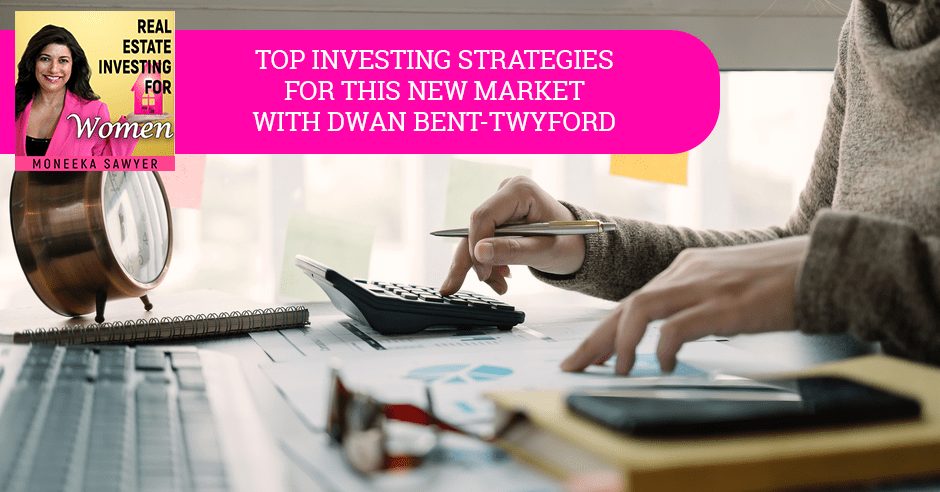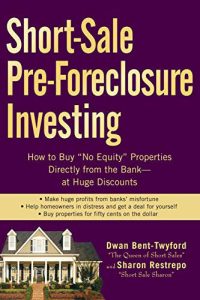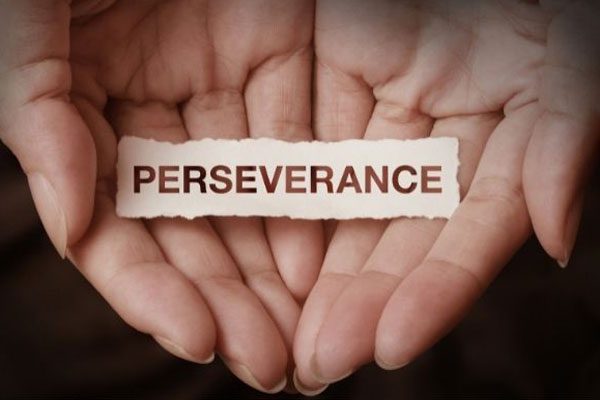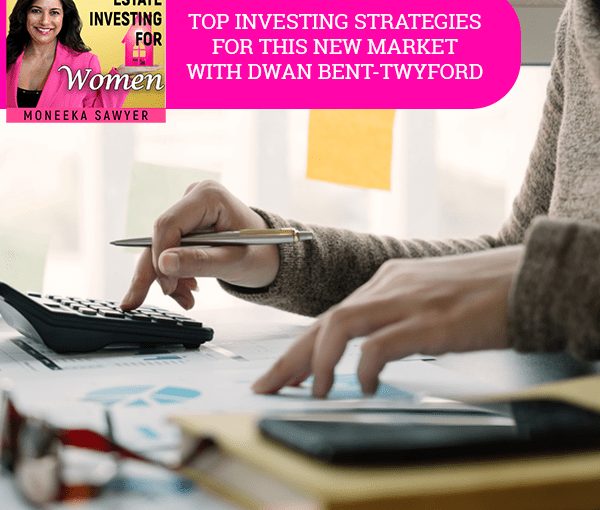Top Investing Strategies For This New Market With Dwan Bent-Twyford

The pandemic caused a lot of suffering in most business industries, and so much transition happened. But we’re all figuring out a way to survive. So, tune into this episode to learn the secrets to success amidst adversities. Moneeka Sawyer talks with Dwan Bent-Twyford on the top investing strategies in the new real estate market. Dwan is affectionately known as the Queen of Short Sales and the nation’s number one expert on short sales and foreclosures. Her goal is to help and make a difference in people’s lives. She shares about taking the initiative, sending your message across, and staying persistent in what you want to achieve. She also shares the importance of self-care and healthy routines.
—
Watch the episode here
Listen to the podcast here
Top Investing Strategies For This New Market With Dwan Bent-Twyford
Real Estate Investing For Women
In this episode, I’m excited to welcome to the show Dwan Bent-Twyford. She started as a broke single mom who had been fired from Denny’s. She now heads up Investor’s Edge University, a company that specializes in training new and seasoned investors in a wide range of real estate investing techniques through live workshops, weekly webinars and other stuff. Having flipped over 2,000 deals herself, she is more than qualified to share her vast knowledge of real estate investing with America.
She is affectionately known as the Queen of Short Sales and is considered to be the nation’s number one expert on short sales and foreclosures. She has written three bestsellers, Short-Sale Pre-Foreclosure Investing and How to Sell a House When It‘s Worth Less Than the Mortgage. Her most recent New York Times Best Seller was written with Steve Forbes, SuccessOnomics. Her goal never changes. It’s always to make a difference in the lives of others. Dwan, welcome to the show.
I’m excited. I’m happy to be here.
We had so much fun on your show. I have been looking forward to this conversation forever.
When you were on my show, it was so great.
Forbearance has caused millions of people to inadvertently find themselves in foreclosure right now.
Ladies, her show was supposed to be an hour. We were on for 1 hour and 15 minutes. We were both like, “We can’t stop talking.”
Everyone listened. It got a lot of hits and people loved it.
I’m glad to hear that. I’m always happy to offer my experience and wisdom. Now, it is all about you. Dwan, tell us your amazing getting started story because I love it.
It’s funny when I think about getting fired from Denny’s because I used to work the third shift. I worked from 10:00 at night until 6:00 in the morning. It was in Fort Lauderdale and it was what they call the Big Denny’s, which is all the nightclubs were around there. People came in at night. I knew a lot of people that were in the bar business and different things. Once in a while, I would maybe have a drink or something with one of my people and probably does something I shouldn’t have done.
They had transferred this daytime manager. She was in trouble for something. She got to transfer to the nighttime. She hated the nighttime people because she was like that 5:00 AM, getting people their breakfast in the one door. She hated all the loud and the people that came in at night. One night, I might have had a drink or two at work. She had said something to me and I pat her back pretty solid. At 3:45 in the morning, I got fired.
I remember looking back and thinking, “Who gets fired at 3:45 in the morning? What is that about?” In hindsight, getting fired from Denny’s was super embarrassing. I’m not against anyone out there that works at Denny’s. I worked there for a long time. I still love those Grand Slams but I thought, “How on Earth am I fired from a job like that?” As it turned out, in my twenties, I was fired from a lot of jobs. You can look at all your friends, you know what all their problems are and you can tell them how to solve all the problems. I was that person.
I would work for a company and go, “If you would do this and this, your company would be so much better to the owners of the company.” Many people did not appreciate me telling them how they could do a way better job but they were listening to this young twenty-year-old girl that had blonde hair, big Madonna perm and not taking me seriously. I got fired from a couple of jobs for faffing, back-talking and giving my opinion too often and too freely. I’m an entrepreneur inside. I just didn’t know it yet.
Tell us about the real estate story.

Short-Sale Pre-Foreclosure Investing: How to Buy “No-Equity” Properties Directly from the Bank — at Huge Discounts-
I was in my late twenties. I got married. I had a baby. I was 30 years old. In my mind, I thought this was my prince charming. I was going to stay home, raise kids and be the Girl Scout mom, homeroom mom and cookie mom. That was where my head was at. I remember my daughter was only eight months old when we separated unexpectedly. He took the car and the money and cleaned out the bank. It was gone. All of a sudden, I was like, “I have this eight-month-old baby and I have no job. Now, I have no husband.” It squelched my thought of what I thought I would do. It was smashed in one swoop.
There’s this term where people say they have a come-to-Jesus moment where something bad happens in your life. You only have to look hard and make a decision that could be life-changing. I was 30 years old. My daughter was little and I was like, “I still want to do those things. I want to be the homeroom mom, cookie mom and field trip mom. How do I make that happen because I have been fired from ten jobs?” I thought, “I could work for myself. I could take all those opinions I have had and put them to use but I didn’t have any skills and I didn’t know what to do.” That was my big dilemma.
As I was going out looking for jobs and something to do, I ran across some guys that were investors. They said to me, “We buy houses. We fix them up and we sell them.” Because I know nothing about real estate, investing or anything, my mind here was, “We’ll buy houses. We decorate and then we sell them.” I thought, “I can decorate. I have excellent taste. I will buy, decorate and sell them.” As you know, rehabbing and decorating are not remotely the same thing. I think this much but I didn’t know that.
I honestly think partially being so naive was a blessing for me because if I had truly understood rehabbing, the depths of it and what it would entail, I’m not sure I would have had the guts to do it. For me, personally, being naive was one of my greatest blessings because I didn’t know what I was getting into but once I was in it, I was like, “I have to make this happen.” I rehabbed this house. I took classes at Home Depot because I didn’t know how to do things.
I made $22,000 on my first house and I thought, “I was in this house. I worked in this house. My daughter was with me. I made $22,000. This is the greatest thing in the world. I’m going to do it again.” Many years later, here I am. I got this house. I ordered a carpet. I knew how to paint so I painted the house. Back then, people made a lot of custom-made blinds. I put in the plants and dealt with stuff. I can remember looking at the kitchen going, “That avocado kitchen and the yellow appliances, I don’t know who is going to buy the cabinets.” I thought, “Who is going to buy this house?” I said, “I need to fix that but I didn’t know how.”
I had been to Home Depot a lot buying some things and the guys were like, “You should take some of the classes.” I was like, “What classes?” They go, “On Saturdays, we do these classes.” I was like, “Okay.” My first class was how to lay a tile. I thought, “The kitchen and the bathrooms need tiling. This is a good class for me.” I measured the kitchen. This was a one-hour class. When I was done, I said to the guy, “These are the dimensions of the kitchen. I need the tile, the grout and the spaces for this much.”
I went back in all my excitement and tiled an entire kitchen. Later, I thought, “I should have started with the bathroom or something smaller, the whole kitchen.” I had to take some of it up. It wasn’t even. It was my first time. I remember looking at the bathroom and thinking, “I should have started in a smaller space but at this point, it was done.” When it was done, I thought, “It looks pretty good. I’ll pat myself right there.” There I went and I started learning how to fix things.
After all this time, you have been in the market for a long time. The market is a little strange now. Talk to me a little bit about what you see happening in the market now.
Grow your own wealth so that you can do more good in the world because if you don’t have wealth, you can’t do as much.
The big thing is everybody had that giant forbearance agreement since March of 2020. We’re rolling up on the end of 2021 but there are millions of people who have not been able to make their mortgage payments. One of the biggest things is when you listen, the banks and the people in the media use the word forbearance specifically and most people don’t understand what a forbearance agreement is. When you’re on a forbearance agreement, the bank may say, “At the end of the time, we’ll put your payments on the back. We’ll take your late payments, divide them up over two years and add them to your payments.”
It’s not like a loan modification where you make a couple of payments and you’re out of foreclosure. People have been moving along in the foreclosure process, even though banks weren’t allowed to go to a foreclosure sale. Forbearance has caused millions of people to inadvertently find themselves in foreclosure now because they are not able to put eighteen payments on the back. People who were behind before didn’t qualify so they are at the door of the foreclosure sale now. It has made for interesting real estate investing time.
One of the things that I’m a big fan of is creative financing. I’m a very big subject to person. If they have a large amount of equity, I will partner with homeowners like that. I wholesale and rehab. Even rehabbing is tough now because all the supplies cost so much money. Plywood is $100 a board. I feel like creative financing is the place that people need to be coming out of COVID, moving forward and trying to get back on track with their mortgage payments.

Investing strategies: When you’re on a forbearance agreement, it’s not like a loan modification where you make a couple of payments and are out of foreclosure.
My daughter was door-knocking in Denver and she met this young girl who was 27. She has $20,000 behind. The banks said they were going to put the payments on the back. They have been trying for a month and they haven’t done it yet. She got a foreclosure notice. This is a young 27-year-old girl. Her dreams are crushed because the banks didn’t do it.
They never said they put them on the back. They said they put people in forbearance. As soon as I heard the word forbearance, I was like, “This is going to be a wicked disaster. When this ends, this is going to be bad for people.” I told everyone I know and every student I have, “Do not miss your payments. I don’t care. Do not because when it’s all said and done, it’s going to be a disaster,” which is turning into as we speak.
It’s hard because people don’t understand. There was so much transition happening even with the banks. The government was not taking care of the banks. The banks were trying to figure it out and survive themselves. It’s not that I’m saying the banks are good. What I’m saying is that there was pain all the way from the top because the government was trying to take care of certain people but it wasn’t taking care of the entire supply chain. In the banking industry, there was a lot of suffering. Now, it gets spread out to everybody. It’s not like the intention was that way but that’s how it was working out because it was unprecedented. We have never seen anything like this.
I have never even in my wildest dreams imagined something like this could happen.
Now, the banks are trying to figure it out. They are scrambling too but we get caught in the shuffle. Unfortunately, I also see a lot of painfulness happening for the people that didn’t pay their mortgages.
I understand a lot of people live paycheck-to-paycheck. When they had no paycheck and they were getting unemployed but it wasn’t enough, people had to buy food and keep the lights on. They have to keep on the power. People had to focus, “I have to eat and feed my kids and family. I need these things.” People are like, “The government is letting me not pay. It’s good.” Now that it’s done, like this young 27-year-old girl, she says like, “I don’t know what to do. I owe $20,000. They won’t put it on the bank. They said they would. They haven’t. I’m arguing. I hired an attorney.”
This person’s life is completely upside down. I met a lot of people that had more money who were able to stay on track and keep their payments a lot. It’s always the middle or lower-class people that get hurt by all these government decisions. It’s sad because those are the people that end up in foreclosure the most to start with. It’s a snowball and it’s getting bigger.
We don’t know if those things hadn’t happened, what would have happened either. I do want to say because I feel like we have gone down a rabbit hole and it feels bad. Ladies, I want you to know this. If you’re one of the ladies that is in this situation that Dwan and I are talking about or end up having to deal with foreclosure, please understand that it turns your world upside down. It is not the end of the world. Every successful person has had huge setbacks. It does not end your life. It does not define who you are. It is simply a circumstance now.
We get paid for the problems that we solve. So, if you are solving a foreclosure problem, there is nothing wrong with making twenty-five or $30,000.
For those of you that are part of the suffering, I’m sorry. Let me know how I can help. Understand that it’s part of our journey. Please stay with us. Don’t leave us. For those of us that are not there but are looking at what Dwan is saying as far as strategies, you can help people get out of that foreclosure situation. You can help them get out of trouble and pain by some of these strategies that Dwan is talking about, which is why I’m excited to be talking to her about it because I’m starting to see it.
We’re at the end of 2021. 2022 is starting and this is when it’s going to hit hard because as the foreclosures are coming, they don’t hit the markets for 3, 4 or 6 months. That’s when you finally discover, “This is what it really was.” What Dwan is going to be talking about is how we can help those people get out of trouble so that they don’t have to suffer that pain. You should get paid for doing good work in the world.
It’s okay for you to get paid to help them. You help them and grow your own wealth so that you can do more good in the world because if you don’t have wealth, you can’t do as much in the world. That’s part of the way that I set up my life too. The wealth is a piece of the goodness that I can provide. It amplifies all that goodness. I want to move forward from that because I felt like we were going down this rabbit hole.
When I went through my divorce, I lost the house in foreclosure and I had my car repossessed. I know how these people feel because I have no husband, car, house and money. I was like, “I have a baby.” I get the winning ticket right there. Part of what made me be successful and helped me was, everyone I met, I was like, “I know exactly how you feel.” My foreclosure working in that space became more about helping people than how much money I could make because I know if I help people and do good, the money will come.
Another thing I want women, men and everyone to understand is we get paid for the problems that we solve. If you are solving a foreclosure problem, there is nothing wrong with making $25,000 or $30,000. If you are mowing someone’s yard, you are probably making $100 a month. What you and I do and a lot of your readers and my readers is we solve some people’s biggest problem they’ll ever have, which is losing their home. There’s no shame in making money doing that because the person that we help gets a fresh start.
They will eventually own a home again and their life will get better. They will always remember how Dwan and Moneeka helped them move out of this tragic situation and get a fresh start. They will look back on us. It’s like, “Those were angels that God sent to me to help me start over.” People don’t need to feel guilty about making money for what we do because if we don’t help them, they are going to lose their house. They are going to get kicked out and it’s going to be a mess.
Thank you for that one. I have been uber lucky and I’m super conservative on so many levels. I haven’t had to suffer through those particular challenges but I have had many people in my life that have and I have had my own set of challenges. Understand that Dwan knows where you’re coming from and I understand the challenge. That’s another reason why I wanted Dwan to talk to you about these strategies because she has been on the other side. When she comes to the table to teach about this, she comes from a broader perspective than a lot of people.
I always say, “Your mess becomes your message.” If you have gone through something, it gives you a message for other people to try to help them maybe not go through it or help them out of it.
In this market, let’s talk about your top three strategies that you love. I want to move into doing a little bit more of a deep dive on sub-tos. When we talk about it, people are like, “What is a sub-to?” We do need to break down what those titles mean too.
My top three things, one is doing short sales because the banks have millions of properties that people aren’t making payments on. Some people owe what their house is worth. The market is coming to you all. It will correct itself and the prices will go down. A short sale is the homeowner is in trouble. They contact you and reach out to you. You’re like, “I’m going to help you out but you owe what your house is worth.” You negotiate with the bank to take less as a full payoff. You might find a $200,000 house. The bank will take $100,000 as full payment. Now, as an investor, you can rehab it, keep it for a rental or wholesale it but the homeowner gets the fresh start.
I trademarked the term short sales back in the ’90s as it applies to real estate investing. I also trademarked the Queen of Short Sales. It’s not to brag but I wrote the very first short sale home study program for real estate investors. I’m excited that I helped start the industry. Short sales are great but they are not an exit strategy. You still have to get rid of the house. I’m not a big fan at this very moment of rehabbing and things that a lot of people will want to do because the prices of all the supplies have gone up so much. It kills your profit margin.

Investing strategies: The secret to investing is perseverance. So cut out the negativity, cut out the noise, focus on your path, stay persistent, and success will come to you.
I’m a big fan of rentals and a lot of people are not going to like this because they don’t understand it. I’m a big fan of the Section 8 Program. All my rentals are Section 8. To summarize in a sentence, what it is designed for is for these single women that have multiple kids. The program was designed to pay their rent. They go to college, get a degree and get a job. The government takes a piece of their paycheck and matches it and they get an FHA house. They get guaranteed to buy a home at the end of the program.
There are women in the Section 8 Program, which is government-subsidized housing, that is using it properly. There are lifers that their whole life, the mom, dad and their kids all live on government subsidy for life. I don’t rent to people like that but I rent to the ones that are in the program going to college. When they are done, they buy a house. What better thing than to help a single mom with multiple children get out of poverty and get their family out of poverty.
During all of COVID, when people weren’t paying rent, Section 8 paid that the first of the month was an automatic deposit. I never missed a rent payment. I’m not being like, “I don’t know those people.” If you understand it, it’s a great way to help people. We’re mostly helping women. In all my twenty years, I only had one male tenant. They were all women. I’m a big fan of rentals that way because if there’s ever another rental moratorium and people don’t have to pay rent, landlords go bankrupt because they can’t make their payments and then I’m huge on subject tos.
The quick version is a homeowner is in distress. They don’t know what they want. They want to walk away at this point. They don’t know what to do. They deed the house to us. Now, we own the property. We can rent it out or owner-finance it to somebody else. We’re there on the mortgage. We’re on the title and ownership side. They deed the house through us. We take it subject to the existing mortgage and then we turn around.
I personally owner-financed mine back out. I do owner refinancing, which you and I are going to be talking about coming up soon. In owner financing, that is the person that wants home ownership again but maybe they can’t qualify for a bank loan because they had a blip like COVID or a health issue. The bank says, “I can’t give you money.” I look at their credit and I’m like, “You had a blip and you paid. You deserve a chance.” I give people a chance for homeownership again. When I think about it, I’m trying to help everybody. Every single math that I do is to help somebody to get back on their feet.
Your mask becomes your message.
Is subject to legal in all states in the United States?
It is. The number one question when you tell something about subject tos is they go, “What about the due-on-sale clause?” Everybody says that. In my twenty years and my hundreds of subject tos, I have done close to 500 subject tos. No bank has ever said, “You’re making the mortgage payments on time. They were not on time and now they are. I want the house back.” It doesn’t happen like that.
The thing is, investors are like, “I heard about this subject to. The bank could take the house from you,” but it doesn’t happen. The homeowners have not been making payments for maybe a year and all of a sudden, those payments are coming in every time. The bank only cares about the money. They don’t care where it comes from. I have never even known of an investor to have a bank called a due-on-sale clause.
The homeowners deed the house to me. My name is on the deed. They are on the mortgage. At some point, you want to refinance them off. I sell the house to somebody else and help them fix their credit. In a few years’ time, they can refinance the house and own it completely by themselves. This other homeowner that is always on time with payments, all of a sudden, their credit got better and I made money in the meantime. On an average subject to house that appears to have no equity, it is not uncommon to make $50,000. Subject tos are a lot of money.
I have heard a lot about subject to myself. I had a couple of people on the show that have talked about subject to. I’m excited because I have been trying to get some of them back. Let’s talk about this again. This is the thing. We are all out there educating and we’re doing the business. I don’t deal with anybody who is not in it because they need to know what’s going on in the current market. Many of my contacts were like, “We’re doing the thing. We’re not teaching.” I’m glad that we’re getting to talk about this.
What I want to do is talk about a webinar that Dwan and I are going to do. This is funny because we didn’t decide on this before we got online and then I got so excited. I was like, “Let’s do a webinar.” First of all, ladies, here are a couple of things that you need to know. Dwan and I are doing a webinar on January 6th, 2022, at 5:00 PM Pacific time. To get more information, go to BlissfulInvestor.com/dwan. Dwan, tell us about what you’re going to cover in the webinar.
I get so excited when I can do a subject to webinar because a lot of people don’t understand it. When you understand it, it is one of the greatest ways to make money. You’re helping the original homeowner restore their credit and you’re helping the new person be able to own a home again. What I’m going to teach is I’m going to show a couple of ways to find deals because you have to find a deal.
I’m going to show people an actual case study, how I found the house, what they owed, what their interest rate was, what their payment was, how we structured and owner financing. I’m going to show exactly how to do that owner financing. I also have a five-year guide to show you. One a month, I’ll say, “You make this bunch per month. In year two, you add. Over the course of five years, you can make about $1.2 million doing one little tiny deal a month, which is easy to do.”
I’m going to show people how to become millionaires. It’s a perfect formula and it works 100% of the time. I have done close to 500 of them and they have all been amazing. I love the homeowner and the tenant. I’m happy to structure this deal. It’s not even hard to do. It’s a matter of having the right paperwork and knowing how to structure the deal so that everything is above board and legal and somebody won’t come back and say, “I didn’t understand.” Everybody gets it. I’m excited to do a webinar with you. I feel so honored.
Ladies, Dwan tries to keep her separate webinar to an hour but we can’t stop talking to each other. Allow 90 minutes and then we’ll do Q&A.
I try to keep it to 1 hour and 15 minutes because I know people are busy but it is a great topic. I honestly believe that creative financing will be the powerhouse of 2022. I’ll even send a couple of little videos out with some, “I’m going to teach you this and this,” so they can get excited about all the things that they are going to learn.
Ladies, if you’re not on my list yet and would like to get reminders, please make sure that you go to BlissfulInvestor.com. Sign up at the very top. There’s an opt-in for my download, which is my favorite strategy. You can opt into that and then you get onto my list. In that way, you’ll get updates on when these things are happening. Go there and sign up for the opt-in so that you can get the reminders too.
We’re going to start everyone off with such a bang. They are going to be like, “I cannot believe that there are these many deals and so much stuff out there. This is the best January ever.”
Dwan, we need to get moving over to EXTRA. We have got three rapid-fire questions before we move to the next show. Before we do that, I do want to let the ladies know what we’re talking about in EXTRA. We’re talking quite a lot about how women treat women. As we’re moving into 2022, there’s so much that has changed in our worlds and lives. One of the things that I would like to see change and I’m already seeing it is how women lift each other up. I find that successful women, we have already learned that it’s a necessity and women have to move towards that.

Investing strategies: You have to put self-care and make it a priority because really trying to run a successful business is difficult. It’s mentally challenging. If you’re not up for it, it’s draining and not fun.
I remember a friend of mine. Her name is Leeza Gibbons. She said to me once, “Girls compete. Women collaborate.” Dwan and I were having this phenomenal conversation about women and how we treat each other and how we each see things. It might give you a little bit of perspective on your own life and who you’re hanging out with and help you to start engaging with people that will be more uplifting and you’ll also be an uplifter for them. We’re going to be talking about that in EXTRA. Stay tuned for that. Dwan, give us one super tip on getting started in real estate investing.
To get started, you need to find someone that you feel like you’re on the same moral compass with them and maybe you learn and listen and not try to wing out as I did. I was a trial and error for a decade. Go in with some knowledge but pay attention to who you listen to and make sure they are a real estate investor, not a marketer. Shiny objects don’t make you any money.
Tell us one strategy for being successful as a real estate investor.
Honestly, it’s perseverance. I started many years ago and there were very few women in the industry and hardly any women teaching, for sure. If I had let all the people, naysayers and voices that I heard around me affect me, I would never have stayed true to the path. Cut out the negativity and noise. Focus on your path, stay persistent and success will come to you.
What would you say is one daily practice that you do that contributes to your personal success?
It’s probably not even a success practice. When I get up in the morning, I take care of myself first. I drink my water, take my collagen, eat and do all those things to take care of myself. Whereas I used to open my eyes, grab my phone and get on it. What happens is the day gets away from you. It’s noon, you haven’t even eaten yet and you’re starving. I wake up and in the first two hours of the day, I only take care of myself. Some people go, “It’s selfish to spend so much time on yourself.” If you don’t take care of yourself, you can’t take care and help others.
I learned I got to take care of myself to help everybody else. Women feel guilty about that because they got to get the kids to school and make breakfast. They don’t feel like they have time to take care of themselves especially women. We need to realize that if we don’t take care of ourselves, we can’t take care of everybody else. I faithfully, every morning, do my routines before anything happens.
I don’t know if you have noticed this, ladies. A lot of successful people say this.
For the record, I’m not that person that says, “Get up at 5:00 AM and do all this stuff.” Every person I have interviewed is like, “I get up at 4:00 or 5:00.” I’m like, “I wake up at 7:30.” I don’t even set the alarm. I woke up at 8:30. I was like, “I needed the extra sleep.” I’m not like, “Get up at 5:00 AM, be the early bird and get the worm.” I’m like, “If that’s the case, don’t be the worm.” Somewhere along the way, you have to put self-care and make it a priority because trying to run a successful business is difficult. It’s mentally and physically challenging. It’s exciting but if you’re not up for it, it’s draining and dragging and it’s not fun.
Thank you so much for all that you have offered on this portion of the show, Dwan. This has been so much fun.
I appreciate you having me on, Moneeka. I have looked forward to this for months. I’m so excited to be on talking to you and all your successful women.
Ladies, we got more. We’re going to be talking about uplifting other women in EXTRA. If you are subscribed to EXTRA, stay tuned. There’s more to come. If you are not, please subscribe at RealEstateInvestingForWomenEXTRA.com. You get the first seven days for free. Check it out and then you can stay subscribed or not. For those of you that are leaving Dwan and I, thank you so much for joining us. You know how much I appreciate you. I hope you have a lovely week. I will talk to you soon. Take care.
Important Links
- Investor’s Edge University
- Short-Sale Pre-Foreclosure Investing
- How to Sell a House When It’s Worth Less Than the Mortgage
- SuccessOnomics
- Show – Moneeka Sawyer – Inside The Minds of Today’s Millionaires
- BlissfulInvestor.com/Dwan
- RealEstateInvestingForWomenEXTRA.com
About Dwan Bent-Twyford
 Dwan is known as the “Queen of Short Sales”® and is considered to be the Nation’s #1 Expert on Short Sales & Foreclosures. She has written two best sellers, “Short Sale Pre-Foreclosure Investing” & “How to Sell a House When It’s Worth Less Than the Mortgage”. She is highly sought after and has been featured on Fox and Friends, MSNBC, Naomi’s Good Morning, Colorado and Company, and many other TV, radio, and print medias.
Dwan is known as the “Queen of Short Sales”® and is considered to be the Nation’s #1 Expert on Short Sales & Foreclosures. She has written two best sellers, “Short Sale Pre-Foreclosure Investing” & “How to Sell a House When It’s Worth Less Than the Mortgage”. She is highly sought after and has been featured on Fox and Friends, MSNBC, Naomi’s Good Morning, Colorado and Company, and many other TV, radio, and print medias.
In addition to being the Nation’s #1 real estate investing expert, she is a Christian, mother, wife, financial counselor for her church, and a corporate sponsor of Orrin Hudson’s “Be Someone” nonprofit organization – a program designed to keep kids off the streets by teaching them to play chess.
Her goal never changes – to make a difference in the lives of others! God Bless…
Love the show? Subscribe, rate, review, and share!
______________________________________
To listen to the EXTRA portion of this show go to RealEstateInvestingForWomenExtra.com
To see this program in video:
Search on Roku for Real Estate Investing 4 Women or go to this link: https://blissfulinvestor.com/biroku
On YouTube go to Real Estate Investing for Women
Moneeka Sawyer is often described as one of the most blissful people you will ever meet. She has been investing in Real Estate for over 20 years, so has been through all the different cycles of the market. Still, she has turned $10,000 into over $5,000,000, working only 5-10 hours per MONTH with very little stress.
While building her multi-million dollar business, she has traveled to over 55 countries, dances every single day, supports causes that are important to her, and spends lots of time with her husband of over 20 years.
She is the international best-selling author of the multiple award-winning books “Choose Bliss: The Power and Practice of Joy and Contentment” and “Real Estate Investing for Women: Expert Conversations to Increase Wealth and Happiness the Blissful Way.”
Moneeka has been featured on stages including Carnegie Hall and Nasdaq, radio, podcasts such as Achieve Your Goals with Hal Elrod, and TV stations including ABC, CBS, FOX, and the CW, impacting over 150 million people.

